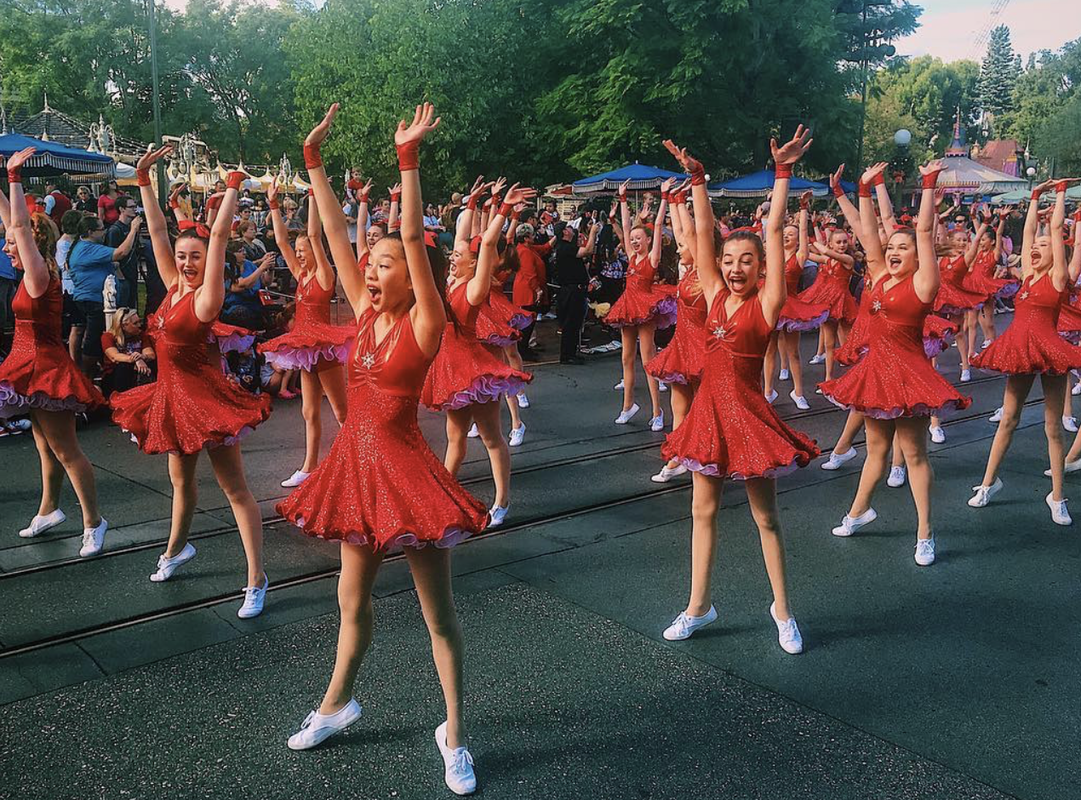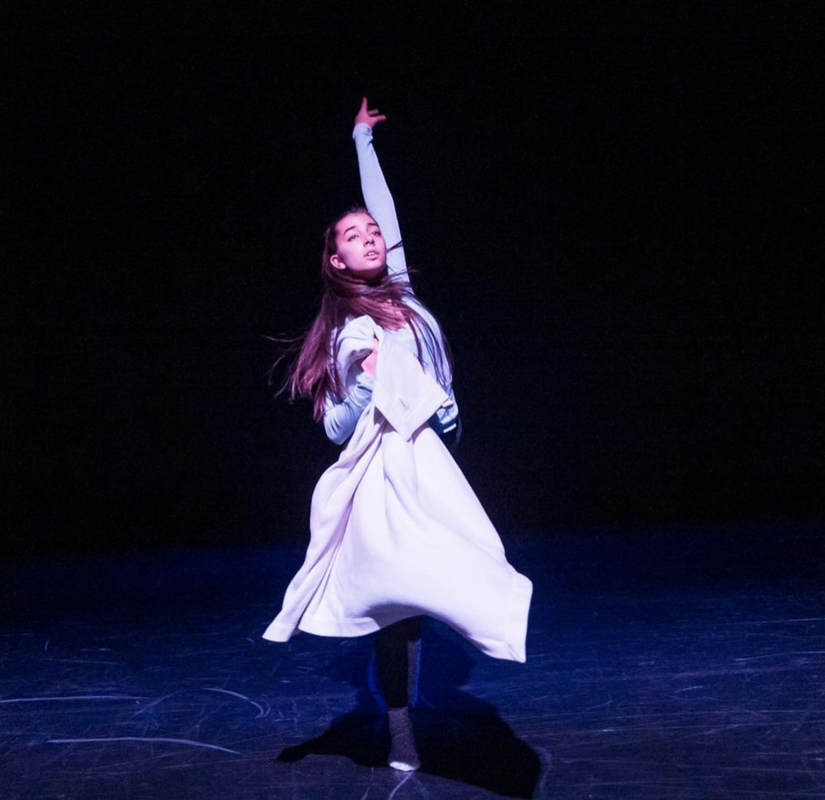
Cassidy Foley
By Eliza Qiu
Cassidy Foley is a grade 12 student at Collingwood with a passion for dance. After moving between Mexico and America multiple times, she immigrated to Canada in gr.6 and started attending Collingwood ever since gr.8.
Cassidy first started taking dancing classes at Shift Dance academy in grade 6, since then, she has been dancing inside of school and excelling most in contemporary and hip-hop. For her, it’s an integral part of her life. Dance is an important form of expression, an emotional outlet of sorts, she explains. “Sometimes when I’m feeling overwhelmed, I would improvise a routine in my living room to unwind.” Cassidy notes that it helps her relax. When dancing, expelling negative emotions and processing events becomes easier for her.
To Cassidy, dance is a demanding and unique art form. “Using only your body movement to express emotions is a challenging thing, but it feels spiritual at times,” she replies when asked about what makes dance special to her.
Before she became a dancer, Cassidy dedicated plenty of her elementary years to figure skating. According to Cassidy, dancing and traveling with her classmates allowed for more bonding and trust in a group, compared to the more individualistic nature of figure skating. “It’s an amazing feeling to know that I’m working with many other talented and inspiring people on the same stage,” she quotes.
By Eliza Qiu
Cassidy Foley is a grade 12 student at Collingwood with a passion for dance. After moving between Mexico and America multiple times, she immigrated to Canada in gr.6 and started attending Collingwood ever since gr.8.
Cassidy first started taking dancing classes at Shift Dance academy in grade 6, since then, she has been dancing inside of school and excelling most in contemporary and hip-hop. For her, it’s an integral part of her life. Dance is an important form of expression, an emotional outlet of sorts, she explains. “Sometimes when I’m feeling overwhelmed, I would improvise a routine in my living room to unwind.” Cassidy notes that it helps her relax. When dancing, expelling negative emotions and processing events becomes easier for her.
To Cassidy, dance is a demanding and unique art form. “Using only your body movement to express emotions is a challenging thing, but it feels spiritual at times,” she replies when asked about what makes dance special to her.
Before she became a dancer, Cassidy dedicated plenty of her elementary years to figure skating. According to Cassidy, dancing and traveling with her classmates allowed for more bonding and trust in a group, compared to the more individualistic nature of figure skating. “It’s an amazing feeling to know that I’m working with many other talented and inspiring people on the same stage,” she quotes.
Of course, Cassidy was also met with challenges along the way. One of the major things she had to work around was the balance between her passion and her academics. She states that it took a lot of organizational skills to fit everything in her schedule, but was glad her arrangements continue to hold up.
Besides better time management, dancing gave her many other important skills and takeaways. “Through the years, I’ve become more open to criticism and more emotionally expressive.” Cassidy also recounts a lesson she learned when choosing between continuing with competitive dancing or not. Instead of chasing after results, she chose to preserve her passion and chose to do non-competitive dancing. When asked about her reasoning, she replied: “You have to do things for yourself. I didn’t want to be put under the pressure of competitions, so I stuck with keeping things recreational.”
When asked about advice for others who are beginners to dance, or want to start, Cassidy suggests for them to take classes outside of school first, as it is a great way to solidify foundational skills and build confidence.
As a parting remark, Cassidy wants to send out her gratitude to her fellow classmates, whose passion continues to inspire her. She also wants to especially thank Ms.Tench. “She does dance purely because she loves it, and always wants to help others find their identity through it.” High school is always a turbulent time in which students scramble to define and refine their identity, and Ms.Tench played a huge role in supporting Cassidy to find hers. Cassidy also admires Ms.Tench for her ability to make the dance studio such a safe place for her to step out of her comfort zone. She hopes to continue her hobby even after graduation.
Besides better time management, dancing gave her many other important skills and takeaways. “Through the years, I’ve become more open to criticism and more emotionally expressive.” Cassidy also recounts a lesson she learned when choosing between continuing with competitive dancing or not. Instead of chasing after results, she chose to preserve her passion and chose to do non-competitive dancing. When asked about her reasoning, she replied: “You have to do things for yourself. I didn’t want to be put under the pressure of competitions, so I stuck with keeping things recreational.”
When asked about advice for others who are beginners to dance, or want to start, Cassidy suggests for them to take classes outside of school first, as it is a great way to solidify foundational skills and build confidence.
As a parting remark, Cassidy wants to send out her gratitude to her fellow classmates, whose passion continues to inspire her. She also wants to especially thank Ms.Tench. “She does dance purely because she loves it, and always wants to help others find their identity through it.” High school is always a turbulent time in which students scramble to define and refine their identity, and Ms.Tench played a huge role in supporting Cassidy to find hers. Cassidy also admires Ms.Tench for her ability to make the dance studio such a safe place for her to step out of her comfort zone. She hopes to continue her hobby even after graduation.

